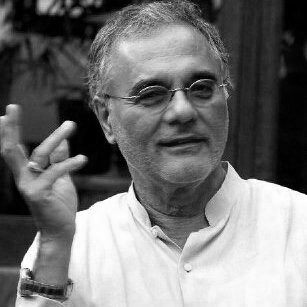KEYNOTES
Dušan I. Bjelić
 Dušan I. Bjelić is an Associate Professor of Criminology at the University of Southern Maine. He received both his B.A. (1976) and M.A. (1981) in Sociology from the University of Belgrade. He earned his Ph.D in Sociology from Boston University in 1989. He joined the University of Southern Maine faculty in 1990. He has taught sociology at the University of Belgrade, Boston University, Tufts, Bentley, and Emerson College. His areas of interest are ethnomethodology, Balkan studies, and critical studies of psychoanalysis and psychiatry. His published works include: Intoxication, Modernity, and Colonialism: Freud's Industrial Unconscious, Benjamin's Hashish Mimesis (2017); Normalizing the Balkans: Geopolitics of Psychiatry and Psychoanalysis published (2016); Galileo's Pendulum: Science, Sexuality and the Body-Instrument Link (2003); and the edited volumes Balkan Transnationalism at the Time of Neoliberal Catastrophe (2019) and Balkan as Metaphor: Between Globalization and Fragmentation (2002).
Dušan I. Bjelić is an Associate Professor of Criminology at the University of Southern Maine. He received both his B.A. (1976) and M.A. (1981) in Sociology from the University of Belgrade. He earned his Ph.D in Sociology from Boston University in 1989. He joined the University of Southern Maine faculty in 1990. He has taught sociology at the University of Belgrade, Boston University, Tufts, Bentley, and Emerson College. His areas of interest are ethnomethodology, Balkan studies, and critical studies of psychoanalysis and psychiatry. His published works include: Intoxication, Modernity, and Colonialism: Freud's Industrial Unconscious, Benjamin's Hashish Mimesis (2017); Normalizing the Balkans: Geopolitics of Psychiatry and Psychoanalysis published (2016); Galileo's Pendulum: Science, Sexuality and the Body-Instrument Link (2003); and the edited volumes Balkan Transnationalism at the Time of Neoliberal Catastrophe (2019) and Balkan as Metaphor: Between Globalization and Fragmentation (2002).
Julian Go
 Julian Go is an Associate Professor of Sociology at Chicago University. He has held Visiting Fellowships and Professorships at the London School of Economics, Pompeu Fabra University in Barcelona, University of Lucerne in Switzerland, and the Third World Studies Centerin the Philippines. His work explores the social logics of imperial formations and modern colonialism; postcolonial/decolonial thought and related questions of social theory, epistemology, and knowledge; and global historical sociology. Much of Go’s work has focused on the US empire, resulting in articles and books such as Patterns of Empire: The British and American Empires, 1688 to Present (2011); American Empire and the Politics of Meaning (2008); and The American Colonial State in the Philippines: Global Perspectives (co-edited with Anne Foster, 2003). His other work is on postcolonial thought and social theory, culminating in his book Postcolonial Thought and Social Theory (2016), and on global historical sociology and transnational field theory – see the edited volumes Fielding Transnationalism (co-edited with Monika Krause, 2016) and Global Historical Sociology (co-edited with George Lawson, 2016). His current projects include the history of imperialism’s impact on police militarization in the US, the UK and France. He also continues to explore the implications of postcolonial/decolonial/Southern thought upon social scientific knowledge.
Julian Go is an Associate Professor of Sociology at Chicago University. He has held Visiting Fellowships and Professorships at the London School of Economics, Pompeu Fabra University in Barcelona, University of Lucerne in Switzerland, and the Third World Studies Centerin the Philippines. His work explores the social logics of imperial formations and modern colonialism; postcolonial/decolonial thought and related questions of social theory, epistemology, and knowledge; and global historical sociology. Much of Go’s work has focused on the US empire, resulting in articles and books such as Patterns of Empire: The British and American Empires, 1688 to Present (2011); American Empire and the Politics of Meaning (2008); and The American Colonial State in the Philippines: Global Perspectives (co-edited with Anne Foster, 2003). His other work is on postcolonial thought and social theory, culminating in his book Postcolonial Thought and Social Theory (2016), and on global historical sociology and transnational field theory – see the edited volumes Fielding Transnationalism (co-edited with Monika Krause, 2016) and Global Historical Sociology (co-edited with George Lawson, 2016). His current projects include the history of imperialism’s impact on police militarization in the US, the UK and France. He also continues to explore the implications of postcolonial/decolonial/Southern thought upon social scientific knowledge.
Mahmood Mamdani
 Mahmood Mamdani is a Ugandan academic, author, and political commentator. He currently serves as the Chancellor of Kampala International University, Uganda, and is the director of the Makerere Institute of Social Research (MISR), as well as the Herbert Lehman Professor of Government at the School of International and Public Affairs, Columbia University, and Professor of Anthropology, Political Science and African Studies at Columbia University. Mamdani specializes in the study of African and international politics, colonialism and post‐colonialism, and the politics of knowledge production. He has received numerous awards and recognitions, including being listed as one of the "Top 20 Public Intellectuals" by Foreign Policy (US) and Prospect (UK) magazine in 2008. From 1998 to 2002, he served as President of CODESRIA (Council for the Development of Social Research in Africa).
Mahmood Mamdani is a Ugandan academic, author, and political commentator. He currently serves as the Chancellor of Kampala International University, Uganda, and is the director of the Makerere Institute of Social Research (MISR), as well as the Herbert Lehman Professor of Government at the School of International and Public Affairs, Columbia University, and Professor of Anthropology, Political Science and African Studies at Columbia University. Mamdani specializes in the study of African and international politics, colonialism and post‐colonialism, and the politics of knowledge production. He has received numerous awards and recognitions, including being listed as one of the "Top 20 Public Intellectuals" by Foreign Policy (US) and Prospect (UK) magazine in 2008. From 1998 to 2002, he served as President of CODESRIA (Council for the Development of Social Research in Africa).
Mamdani’s books include Neither Settler Nor Native: The Making and Unmaking of Permanent Minorities (2020); Define and Rule: Native as Political Identity (The W.E.B. DuBois Lectures) (2012); Saviors and Survivors: Darfur, Politics, and the War on Terror (2009); Good Muslim, Bad Muslim: America, the Cold War and the Roots of Terror (2004); When Victims Become Killers: Colonialism, Nativism and Genocide in Rwanda (2001); Citizen and Subject: Contemporary Africa and the Legacy of Late Colonialism (1996) Politics and Class Formation in Uganda (1976); From Citizen to Refugee (1973); and The Myth of Population Control: Family, Class and Caste in an Indian Village (1972).
Boaventura de Sousa Santos
 Boaventura de Sousa Santos is an Emeritus Professor of Sociology at the University of Coimbra (Portugal), and also a Distinguished Legal Scholar at the University of Wisconsin-Madison. He is the Director of the Center for Social Studies at the University of Coimbra and has written and published widely on issues of globalization, sociology of law and the state, epistemology, and social movements. He has proposed the concept of “Epistemologies of the South” as a reply to the Western hegemony of knowledge. He has been involved in long-term fieldwork research in Brazil, Cabo Verde, Macau, Mozambique, South Africa, Colombia, Bolivia, Ecuador and India, and later became one of the driving forces behind the World Social Forum, the spirit of which he considers essential to his studies of counter-hegemonic globalization– a path to promote the struggle for global cognitive justice.
Boaventura de Sousa Santos is an Emeritus Professor of Sociology at the University of Coimbra (Portugal), and also a Distinguished Legal Scholar at the University of Wisconsin-Madison. He is the Director of the Center for Social Studies at the University of Coimbra and has written and published widely on issues of globalization, sociology of law and the state, epistemology, and social movements. He has proposed the concept of “Epistemologies of the South” as a reply to the Western hegemony of knowledge. He has been involved in long-term fieldwork research in Brazil, Cabo Verde, Macau, Mozambique, South Africa, Colombia, Bolivia, Ecuador and India, and later became one of the driving forces behind the World Social Forum, the spirit of which he considers essential to his studies of counter-hegemonic globalization– a path to promote the struggle for global cognitive justice.
His most recent books in English are: The Pluriverse of Human Rights: The Diversity of Struggles for Dignity (Ed. with Bruno Sena Martins) (2021); Decolonising the University: The Challenge of Deep Cognitive Justice (2021); Toward a New Legal Common Sense: Law, Globalization, and Emancipation. (2020); Demodiversity: Toward Post-Abyssal Democracies (Ed. with José Manuel Mendes) (2020); Knowledges Born in the Struggle. Constructing the Epistemologies of the Global South (Ed. with Maria Paula Meneses, 2019); The End of the Cognitive Empire: The Coming of Age of Epistemologies of the South (2018); If God Were a Human Rights Activist. Stanford University Press, 2015; Epistemologies of the South: Justice against Epistemicide (2014).
Ann Laura Stoler
 Ann Laura Stoler is Willy Brandt Distinguished University Professor of Anthropology and Historical Studies at The New School for Social Research. She has made significant contributions to the fields of colonial and postcolonial studies, historical anthropology, feminist theory, the politics of knowledge, colonial governance, racial epistemologies, the sexual politics of empire, and the ethnography of the archives. She has been a visiting professor at the École des Hautes Études, the École Normale Supérieure and Paris 8, Cornell University’s School of Criticism and Theory, Birzeit University in Ramallah, the Johannesburg Workshop in Theory and Criticism, Irvine’s School of Arts and Literature, and the Bard Prison Initiative.
Ann Laura Stoler is Willy Brandt Distinguished University Professor of Anthropology and Historical Studies at The New School for Social Research. She has made significant contributions to the fields of colonial and postcolonial studies, historical anthropology, feminist theory, the politics of knowledge, colonial governance, racial epistemologies, the sexual politics of empire, and the ethnography of the archives. She has been a visiting professor at the École des Hautes Études, the École Normale Supérieure and Paris 8, Cornell University’s School of Criticism and Theory, Birzeit University in Ramallah, the Johannesburg Workshop in Theory and Criticism, Irvine’s School of Arts and Literature, and the Bard Prison Initiative.
Her books include Duress: Imperial Durabilities in Our Times (2016); Imperial Debris: On Ruins and Ruination (2013); Along the Archival Grain: Epistemic Anxieties and Colonial Common Sense (2009); Haunted by Empire: Geographies of Intimacy in North American History (2006), Carnal Knowledge and Imperial Power: Race and the Intimate in Colonial Rule (2002), Race and the Education of Desire: Foucault’s History of Sexuality and the Colonial Order of Things (1995); Capitalism and Confrontation in Sumatra’s Plantation Belt, 1870–1979 (1985; 1995), as well as the edited volumes Tensions of Empire: Colonial Cultures in a Bourgeois World (with Frederick Cooper, 1997), Imperial Formations (with Carole McGranahan and Peter Perdue, 2007). Her commitment to joining conceptual and historical research has lead to collaborative work with historians, literary scholars and philosophers, and most recently the creation of the journal Political Concepts: A Critical Lexicon, of which she is one of the founding editors.
Gina Athena Ulysse
 Gina Athena Ulysse is a self-described postZoraInterventionist. A feminist artist and anthropologist, her practice unearths our collective past to meditate on, and engage with the complexities of our present. She is currently a Professor of Feminist Studies at University of California, Santa Cruz.
Gina Athena Ulysse is a self-described postZoraInterventionist. A feminist artist and anthropologist, her practice unearths our collective past to meditate on, and engage with the complexities of our present. She is currently a Professor of Feminist Studies at University of California, Santa Cruz.
In her own words: “The impulse to create began with surrender to sound. I wanted to be a singer at a very young age in Haiti. Migration spun the quest for song into rock star dreams, poetry, and a doctoral degree in anthropology. Today, as an interdisciplinary artist and educator, the work I do is in response to the muses. Seeking beauty and grace, however haunting, I confront the visceral too often absent in structural analyses. Using a multitude of forms, I explore the borders and spaces between ethnography and performance, physical and textual materials, unmasking our fierce urgency to identify, name, and reckon with the power and vulnerability in unprocessed horrors of colonialism and empire. Playing with recycled ethnographic collectibles, my projects mix the tangible with the intangible. I remix archived histories, statistics, and theories often with Vodou chants, popular songs, natural and sacred objects. The aesthetics in my feminist praxis stem from an organic approach to rasanblaj that is fueled by ancestral, liberation, and love imperatives. Ultimately, my aim is to access/face our collective dehumanization to recreate a fully integrated being without leaving the body behind. I remain inspired for my wish is to make some contribution to a more just world. Works in development in RPPL (Rasanblaj Praxis Project Lab) include: “Are You Sure, Sweetheart, That You Want To Be Well?”– With a title invoking Toni Cade Bambara’s The Salt Eaters, this redwood repozwa rasanblaj explores land-based connections to nature with calabashes, desires, spirits, and vertigo. “BlackLiberationMashUp” – is an ongoing performance meditation on Black diasporic literature from the 19th century to the present, and that Rasanblaj Manifesto is still in effect… Stay tuned!”

